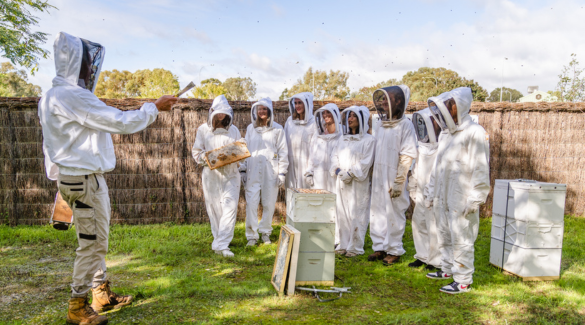When was the last time you saw a honeybee brave a rainstorm? Or jump to and from frost bitten flowers?
You don’t tend to see big swarms in the Winter or hear their happy little hum as they feast on the nectar of wildflowers. So, what happens to bees in the winter?
They protect their Queen
Unlike other insects, bees don’t hibernate. Quite the opposite, in fact. They stay busy throughout the chillier months with their main priority to protect the Queen and keep their colony going. They focus their efforts on making sure there’s plenty of honey in the stores, the winter brood are growing, and the Queen is well taken care of.




